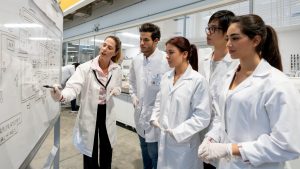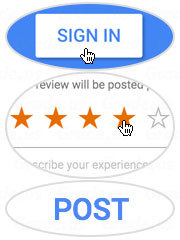Health Science Classes: An Educational Review
Published - September 18, 2024
Do you have an Associate degree from an accredited institution and want to get your Bachelor’s degree in Health Science? If so, you have come to the right place. CBD College is looking for students like you to help you advance in your healthcare career. The Bachelor of Science in Health Science is a Baccalaureate degree completion program. Applicants are required to have a healthcare related associate degree from an accredited institution in order to enroll in the program. Upon successful completion of the program, graduates may obtain employment as:
- Medical and Health Services Managers
- Post-secondary Health Specialties Teachers
- Health Educators
- Health and Safety Specialists
Health Science Classes: An Educational Review
This Online program is made up of seven 11-week modules. The modules included in the Online Bachelor’s of Health Science program include:
MODULE 1
Introduction to Statistics – an introductory course on the basic concepts of data analysis and statistical computing. This course provides students with pragmatic tools for assessing statistical claims and conducting analysis.
Advanced Computer Applications – a review of the Microsoft 365 Office Suite. Students use Word, Excel, PowerPoint, and other cloud-based applications.
Foundations of Health Care Delivery in the U.S – a review of the basic structures and practices of the U.S. healthcare system. Topics in this course include the Affordable Care Act, and trends in healthcare management.
MODULE 2
Organizational Psychology – a review of the foundations of research and applications of an organization’s performance and behaviors.
Accounting Fundamentals – an introduction to the core principles of accounting. Topics in this course include inventories, internal controls, accounts receivables, current liabilities, and payroll.
Health Care Law and Ethics – a review of the legal and regulatory issues that face healthcare professionals.
MODULE 3
Critical and Analytical Thinking – building students’ critical and analytical thinking skills by examining challenges to critical thinking and the cognitive processes of reasoning.
Financial Management in Healthcare – an introduction to financial structures and operations used in the healthcare industry. Topics reviewed in this course include profit and loss, balance sheet, and cash flow statements.
Health Care Policy – an overview of the forces impacting changes in the healthcare delivery and policy in the U.S.
MODULE 4
Professional Communications – a focus on writing, speaking and collaborating in business for effective communication.
Health Care Economics – an application of economic theory to the public health system. Topics reviewed in this course include healthcare markets, the role of government, and supply and demand.
Organization and Management in Health Care Services – a systematic framework for guiding healthcare managers and supervisors.
MODULE 5
Human Disease – an overview of anatomical structures and the physiology of the human body.
Fundamentals of Health Care Reimbursement – the foundational concepts for understanding claims processing, coding, reimbursement, compliance, reporting and auditing.
Health Care Research Methods – a review of qualitative and quantitative research methods. Topics reviewed in this course include electronic research, literature review, application of theory, research questions, methodologies, and mixed methods procedures.
MODULE 6
Health Care Information Systems and Management -a review of the health information system in the current healthcare organization.
Epidemiology – a review of epidemiology, the study of disease occurrence and determinants, which lays the foundation for public health policy.
Cultural Diversity in Health Care – a review of the health promotion and community health issues, Topics reviewed in this course include epidemiology, public health organizations and program planning.
Health Science Career Management – a review of theory and practice for managing a professional healthcare career. Topics reviewed in this course include career goal development, resume writing, interviewing and interpersonal relationship management.
MODULE 7
Health Services: Safety, Quality, and Crisis Management – a review of safety, quality management, and crisis management in a healthcare organization.
Long-Term Care: Challenges and Opportunities – an examination of the complexities and challenges in long-term care operations and delivery. Topics reviewed in this course include laws, policies, and financing of long-term care facilities.
Health Care Marketing – a combination of contemporary theories and practical applications of healthcare marketing.
Health Science Professional Capstone – a project-based application that combines the knowledge and skills learned during the degree program. Students are assessed from the context of a healthcare organization.
Final Thoughts
Now that you know more about the classes included in the Health Science Degree program, it is time to learn more about CBD College. We prepare you for a variety of career opportunities within the healthcare and health-science related industries. After graduation from this program, you will be able to advance in your existing healthcare career or seek entry-level positions within the healthcare industry. Let CBD College prepare you for this rewarding career and help others at the same time. It’s a win-win!
Online Bachelor’s of Health Science Program
You’re already making a difference through the work you love. Now take it to the next level with the Online Bachelor’s of Health Science degree program from CBD College. It’s flexible, affordable, and uniquely tailored to build on the skills and experience you’ve acquired professionally.
Contact us now to learn more.





